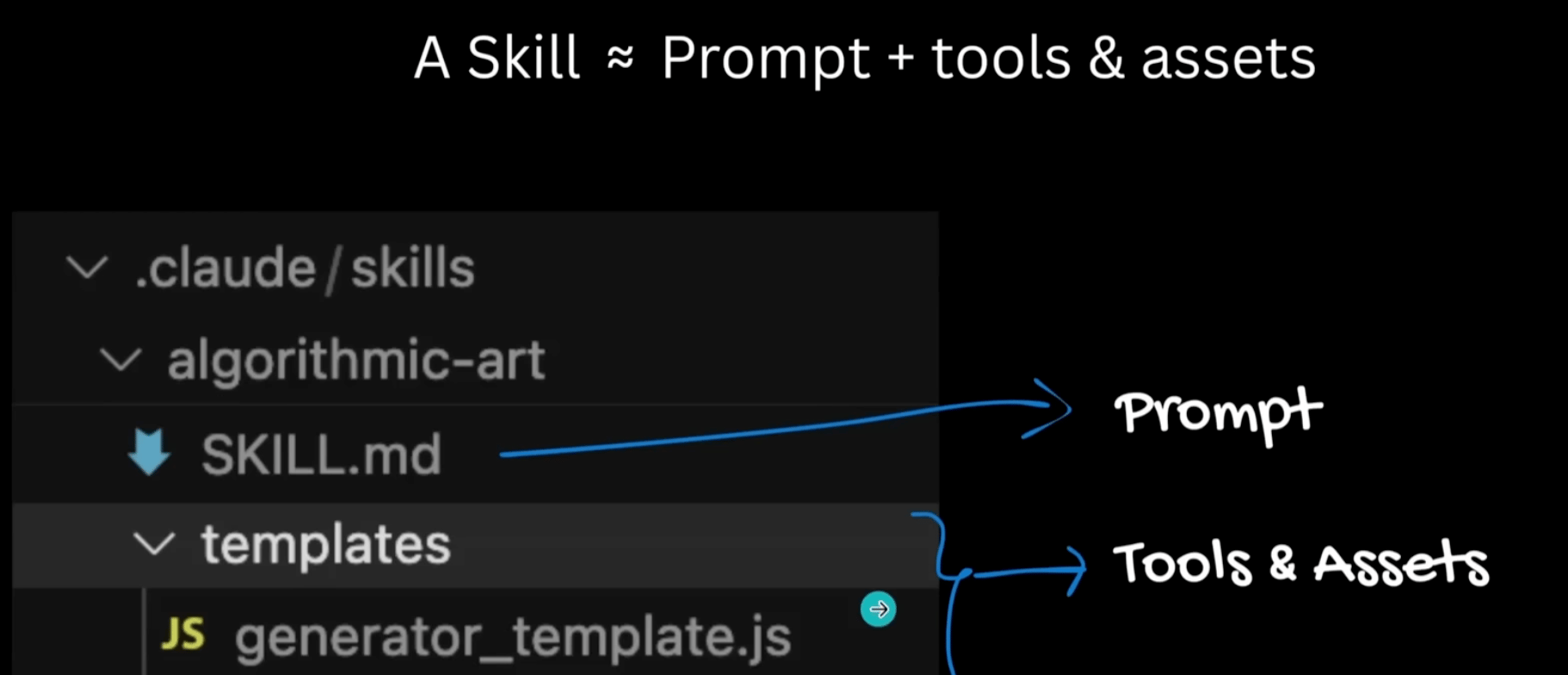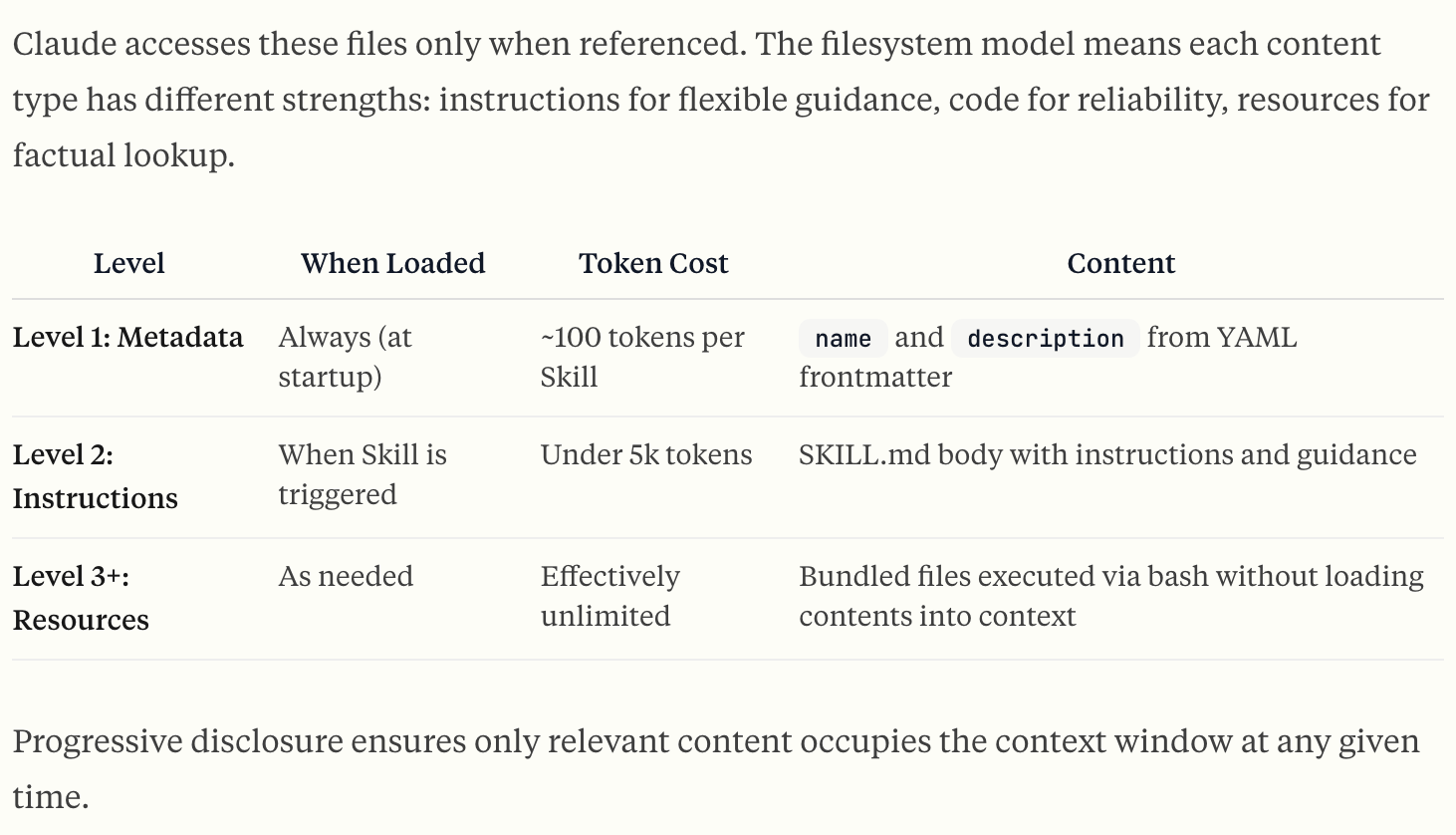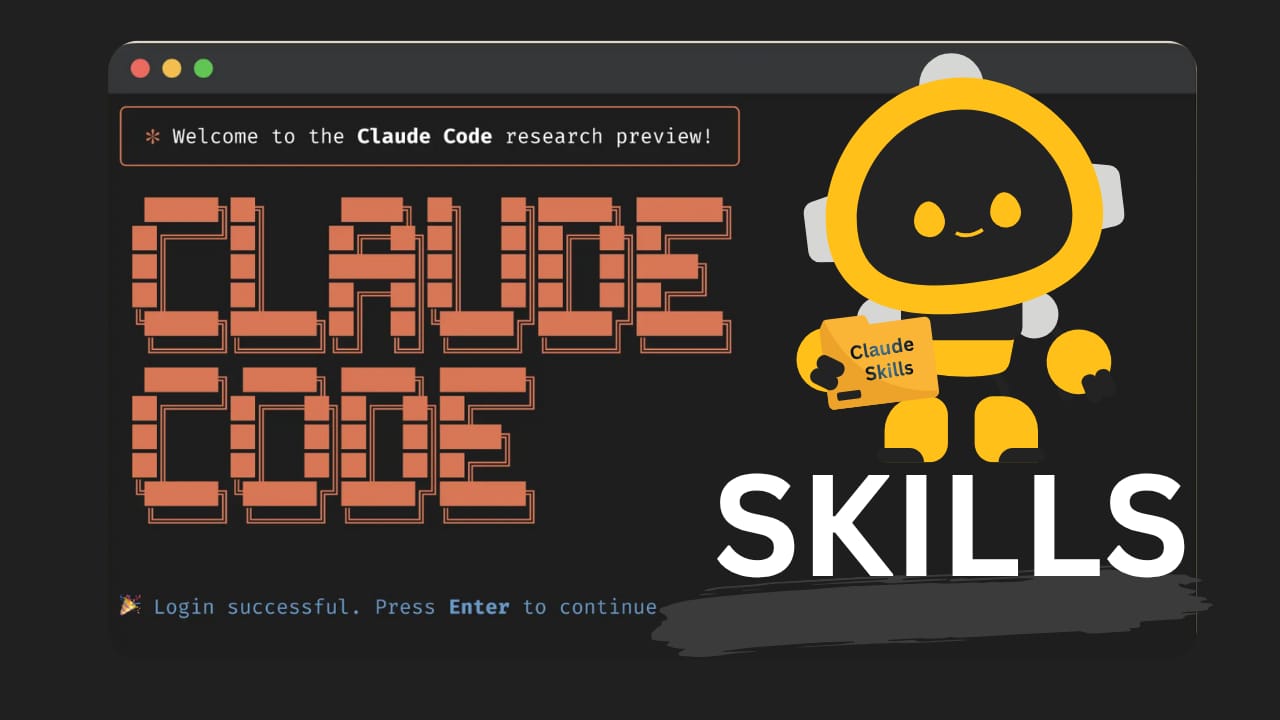A quiet but massive shift just happened in the world of AI agents.
Claude introduced something called Agent Skills, and if you’re building with AI, this one’s worth your full attention.
Because this update doesn’t just make agents smarter.
It changes how they learn, improve, and scale.
Let’s unpack it.
What Exactly Are Agent Skills?
Think of a Skill as a self-contained instruction set that teaches an AI agent how to perform a specific task, just like how a human learns a new playbook.
Each skill lives inside a simple file called skill.md.
That file includes:
A description explaining when and how the skill should be used
A prompt or “instruction memory” for the agent
Optionally, tools, functions, or templates the agent can use to perform the skill more consistently
That’s it. No heavy setup.
A Skill can be as simple as a single prompt, like a Brand Guideline Skill that defines tone, color, and style rules for content creation or as complex as a Slack GIF Creator Skill that imports packages and pre-defines Python functions for generating animations.

In short:
Skills = knowledge + execution packed into one lightweight file.
Why It’s a Big Deal (and Possibly Bigger Than MCP)
If you’ve experimented with MCP (Model Context Protocol), you know it’s a powerful way to extend what an AI can do, by connecting it to external tools, APIs, or data.
But MCPs have friction.
They’re modular, but heavy:
Each MCP can consume thousands of tokens just loading its tool descriptions, schemas, and metadata into context, even if your agent never uses most of them.
Claude’s Skills fix that.
They’re:
🪶 Lightweight: consume far fewer tokens (e.g., 70 vs 4,200+)
🧩 Composable: can be easily combined and swapped
⚡ Performant: load instantly, work right out of the box
🔁 Self-improving: can be used to teach agents about your own codebase and conventions

Here’s the shift in mindset:
MCPs connect agents to tools
Skills teach agents how to use them intelligently
That’s why many builders now believe Skills could outgrow MCPs in impact.

